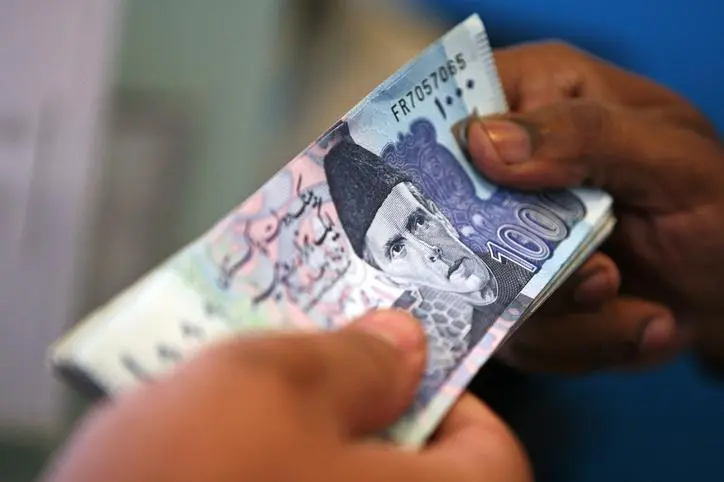PHOTO
S&P Global Ratings on Monday lowered Pakistan's sovereign credit rating one notch to 'B-' from 'B', citing diminished growth prospects and elevated external and fiscal stresses.
In S&P's system, B- is six steps below investment grade.
The ratings agency also affirmed the short-term sovereign rating and issue rating at 'B' and maintained Pakistan's rating outlook at 'stable'.
"We also lowered the long-term issue rating on senior unsecured debt and sukuk trust certificates to 'B-' from 'B'," S&P said.
It further said that the stable outlook reflects its expectations that Pakistan will secure sufficient financing to meet its external obligations over the next 12 months, and that neither external nor fiscal metrics will deteriorate well beyond its current projections.
"We may raise our ratings on Pakistan if the economy materially outperforms our expectations, strengthening the country's fiscal and external positions," the statement said.
Pakistan last month signed a deal to receive a $3 billion loan package from the UAE in order to help bridge a yawning current account deficit and shore up foreign reserves. It agreed to similar deals with Saudi Arabia and China and so far secured about $15 billion loan deals to bridge the external financing gap for fiscal year 2018-19.
The ratings agency said the financial package obtained from Saudi Arabia and the UAE, which also includes the $3.2 billion deferred oil payments facility, will assist in reducing external stresses and increase the State Bank of Pakistan's limited forex reserves.
According to S&P, the country will benefit over the long-term due to the improvements associated with its infrastructure, however, this will be offset by elevated fiscal and external stresses over the coming few years.
The ratings agency said that the government's protracted negotiations with the International Monetary Fund suggest that the resulting reforms will be less "expedient" than previously anticipated.
Fitch in December downgraded Pakistan's long-term foreign currency issuer default rating to 'B-' from 'B', citing a rise in external financing risk from low reserves and high external debt repayments, along with a continued deterioration in the economy's fiscal position.
Copyright © 2019 Khaleej Times. All Rights Reserved. Provided by SyndiGate Media Inc. (Syndigate.info).
Disclaimer: The content of this article is syndicated or provided to this website from an external third party provider. We are not responsible for, and do not control, such external websites, entities, applications or media publishers. The body of the text is provided on an “as is” and “as available” basis and has not been edited in any way. Neither we nor our affiliates guarantee the accuracy of or endorse the views or opinions expressed in this article. Read our full disclaimer policy here.





















